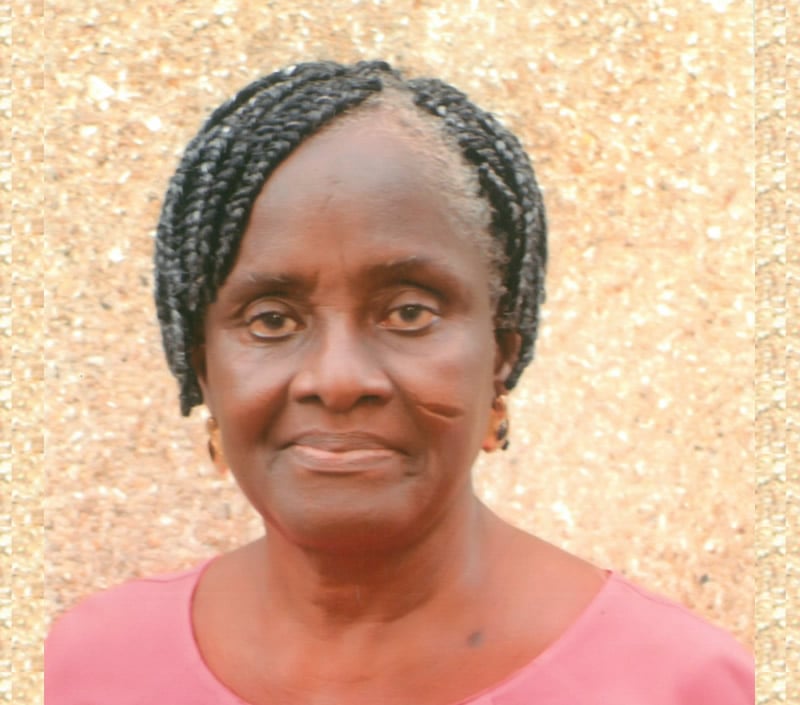
If this morning you tuned into a discussion programme on radio or television in Ghana, you’re more than likely to have heard a contributor begin their comments with a veritable cascade of salutations, something like:
“First of all, let me greet your cherished viewers/listeners and my MP. My greetings also go to the chief of my town; my friend, Mr X; and my colleague, Madam Y, who is a keen follower of this programme.
“I also greet my mother, my wife and my children in town Z, as well as all those who attended my thanksgiving service last week; and my family and friends in the UK. May the Good Lord bless all of you.
“And now to the topic under discussion…”
Or, with some political party members, it might be: “my regards to your listeners/viewers, the General Secretary of our great party, our national chairman; my constituency executive; my wife and your production team …”
I term such greetings ‘unnecessary etiquette’, excessive politeness. And I wonder why; who started it? To me, it shouldn’t be part of electronic media programmes! Indeed, one can’t help seeing in it, for some people, a way of announcing their ‘stardom’, a platform to share their on-air fame.
A few years ago, I wrote about this puzzling Ghanaian practice, in the hope of perhaps prompting a change. But unfortunately, if anything this curious habit has become worse, with the TV stations even surpassing radio!
Below is an abridged version of what I published elsewhere in 2019 about what seems to be a peculiarly Ghanaian ‘airwaves etiquette’ phenomenon.
THE 2019 ARTICLE:
The phone-in craze which generated such controversy a couple of years ago, has now become so much a part of the radio landscape that it no more attracts comment. However, in its place currently there’s a new phenomenon: an excessive concern with greeting listeners by contributors to radio programmes.
My term for this is ‘misplaced radio etiquette’, and because of a copycat mentality among some of us, unfortunately, it is a steadily growing practice! However, I see it as an unnecessary etiquette.
Why, oh why has it now become seemingly mandatory for officials, politicians and other individuals invited to speak on radio to begin with “greetings to your cherished listeners”, or, in Akan “mekyea atiefoɔ”? Where has this irritating habit come from? Or am I the only person who finds this excessive politeness boring and unhelpful?!
The maddening behaviour has gained so much currency that these days one can hardly tune into a radio station discussion without hearing a copycat greeting. It appears that, somehow, people take the greetings to be part of radio courtesy because they have heard others doing it and they feel they have to comply. It is as if they believe that listeners will take offence if they don’t greet them!
But do the listeners and viewers really care whether a contributor greets them or not? As for the listeners and viewers, I suspect that all they are interested in is the opinion, answer or explanation required from the contributor, not their greeting!
Interestingly, when one listens to foreign stations, when people are called to make a contribution to a discussion or explain an issue, what some of them begin with, if they make any sort of courtesy remark at all, is usually just something like, “thank you for having me.”.
What I find even stranger is that here in Ghana, even highly educated people, experts in their field have caught this unnecessary radio etiquette bug!
I’m a great believer in etiquette, greetings at the right time and place, but not excessive, needless politeness and, in my view the ‘I greet listeners’ custom falls into this category.
Contributors to radio and TV programmes should stop being copycats! (Article “More March musings: ‘Radio etiquette’, copycats and those outside the loop” published in The Mirror weekly, Thoughts of a Native Daughter column, March 30, 2019.)
In 2025, evidently my article didn’t have the desired effect! So, I ask: Broadcasting Law, where are you?!
All over the world airtime is expensive and electronic media companies charge high rates for its use. However, in Ghana, it seems that the need to use it efficiently, is not a serious concern, not even for the media houses. Else, why so much allowance for the exasperating, unrelated introductory pleasantries, while listeners and viewers wait impatiently to hear the news, or the views of those invited to share information?
Compare the Ghanaian media approach to, say, the BBC’s. If, for example, a BBC programme calls a correspondent, to give a report, one usually hears the following:
BBC studio, London: “Now we turn to our Chief International Correspondent, Lyse Doucet, who is in Geneva, covering the talks. Lyse, what is the situation?”
Ms Doucet: “Good morning from Geneva. The meeting….” (She goes on to immediately report what is happening.)
Ghana radio/TV studio: “Our correspondent, XYZ, is at the meeting venue. Hello. (pet name or nickname), has the meeting started? And how are you this morning? Did you sleep well?”
Correspondent: “Good morning, my big brother/sister/senior. Yes, by His Grace, I had a good night. And I believe you, too, are all well in Accra? My regards to everybody. The meeting is….”
Again, this is one area where Ghana’s copycat mentality is much in evidence! It seems to have become the norm that when people have the opportunity to speak on air, they see it as an opportunity to make family and friends know that when they were on air, they remembered them! Also, apparently the greetings are seen as the height of airwaves sophistication!
Disturbingly, the compulsion to exchange pleasantries first also features even when experts are given the opportunity to give an opinion. It may be a critical national matter, nevertheless, some will begin with something like: “I hope you and your team are all in good health …” (And I’m thinking, if the presenter was ill, would he/she be in the studio presenting the programme?)
Of course, it could be considered that this excessive greeting phenomenon is Ghana’s special initiative, a contribution to the broadcast media, but is it necessary? Should greetings overshadow the news or opinion that viewers and listeners are waiting for?
Moreover, do the atiefoᴐ lose anything if they are not greeted?
Furthermore, I’m wondering, these people who display such cordiality by extending greetings to unseen and unknown atiefoᴐ, do they extend the same courtesies to their household; everybody they come across; workplace colleagues; or even to their neighbours?
Anyway, I pray that when the long-awaited Broadcasting Law becomes a reality (the Bill, reportedly dates back to 2009!), there will be some guidance, some dos and don’ts, including how to stop people misusing precious airtime!
If you have an opportunity to contribute to a programme, please remember that it’s your views people are waiting for, not your greetings. Your friends and relatives already know that you care about them – or should know by your actions – so this is not the opportunity for you ‘to show your love’!
Let’s avoid the unnecessary, tiresome airtime greeting etiquette; no copycat mentality, please!


